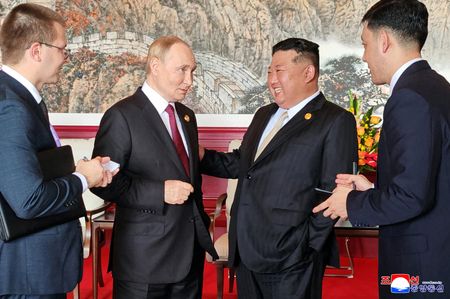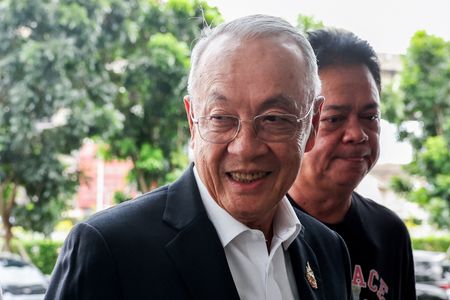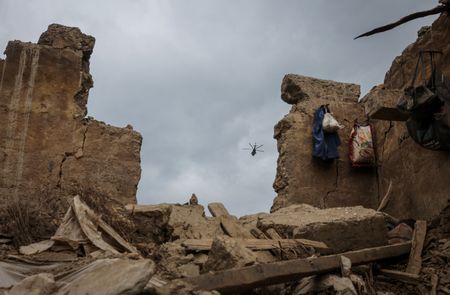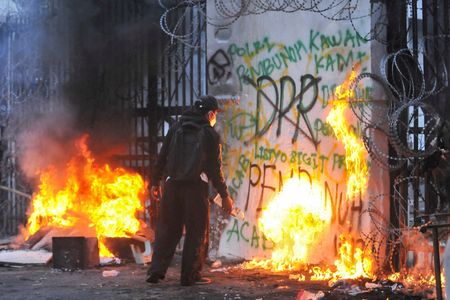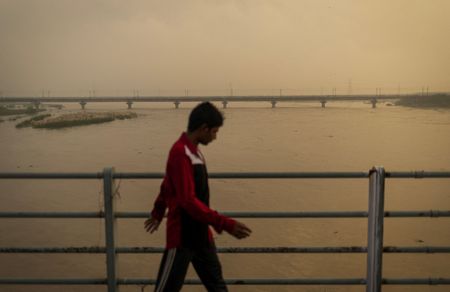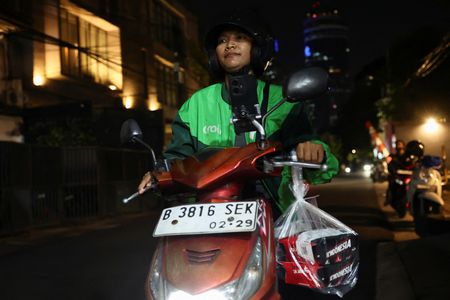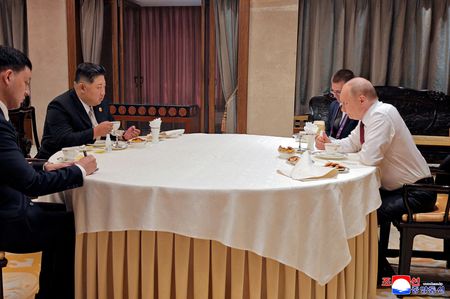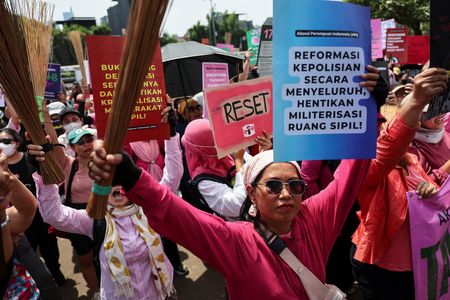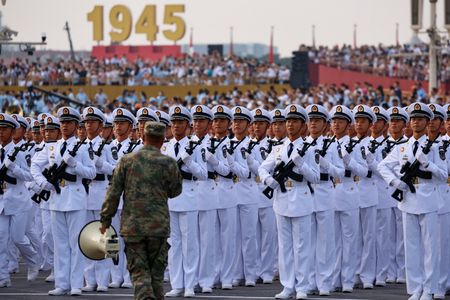By Ju-min Park
SEOUL (Reuters) – North Korean leader Kim Jong Un said his country would “fully support” Russia’s army as a “fraternal duty”, and Russian President Vladimir Putin called the two countries’ ties “special”, state media KCNA reported on Thursday.
Kim and Putin held a meeting on Wednesday on the sidelines of China’s celebrations to mark the formal surrender of Japan in World War Two in Beijing.
The pair flanked Chinese President Xi Jinping at a massive military parade for the first such gathering of the three countries’ leaders since the early days of the Cold War.
Kim’s Beijing trip offered his first-ever chance to meet Putin and Xi together, as well as mingle with the more than two dozen other national leaders who attended the events.
Analysts view his unprecedented gathering on Wednesday with Xi and Putin as a major propaganda win for the reclusive state’s leader.
State media photos showed Kim standing or walking with Putin and Xi side by side with a smile, and state newspaper Rodong Sinmun’s Thursday edition predominantly featured Kim’s visit.
Kim’s whereabouts remain unclear on Thursday.
“Comrade Kim Jong Un and President Putin exchanged candid opinions on important international and regional issues,” KCNA said.
Putin “highly praised” North Korean soldiers fighting against Ukraine and said the two countries’ relations are “special ones of trust, friendship and alliance”, KCNA added.
North Korea has sent soldiers, artillery ammunition and missiles to Russia to support Moscow in its war against Ukraine.
South Korea’s intelligence agency estimated this week that some 2,000 North Korean soldiers sent to fight for Russia have been killed.
It believes North Korea plans to deploy another 6,000 troops, with about 1,000 combat soldiers already in Russia.
Kim and Putin discussed in detail the long-term plans for partnership and reaffirmed their “steadfast will” to elevate bilateral relations to a high level, according to KCNA.
After the pair talked and left the room, Kim’s staffer was spotted cleaning a chair and a sidetable touched by the leader, in what analysts say is part of a suite of security measures to keep other countries, even friendly ones, from trying to glean information about his health.
Last year, the two leaders signed a mutual defence treaty, which calls for each side to come to the other’s aid in case of an armed attack.
(Reporting by Ju-min Park; Editing by Franklin Paul, Sonali Paul and Ed Davies)

